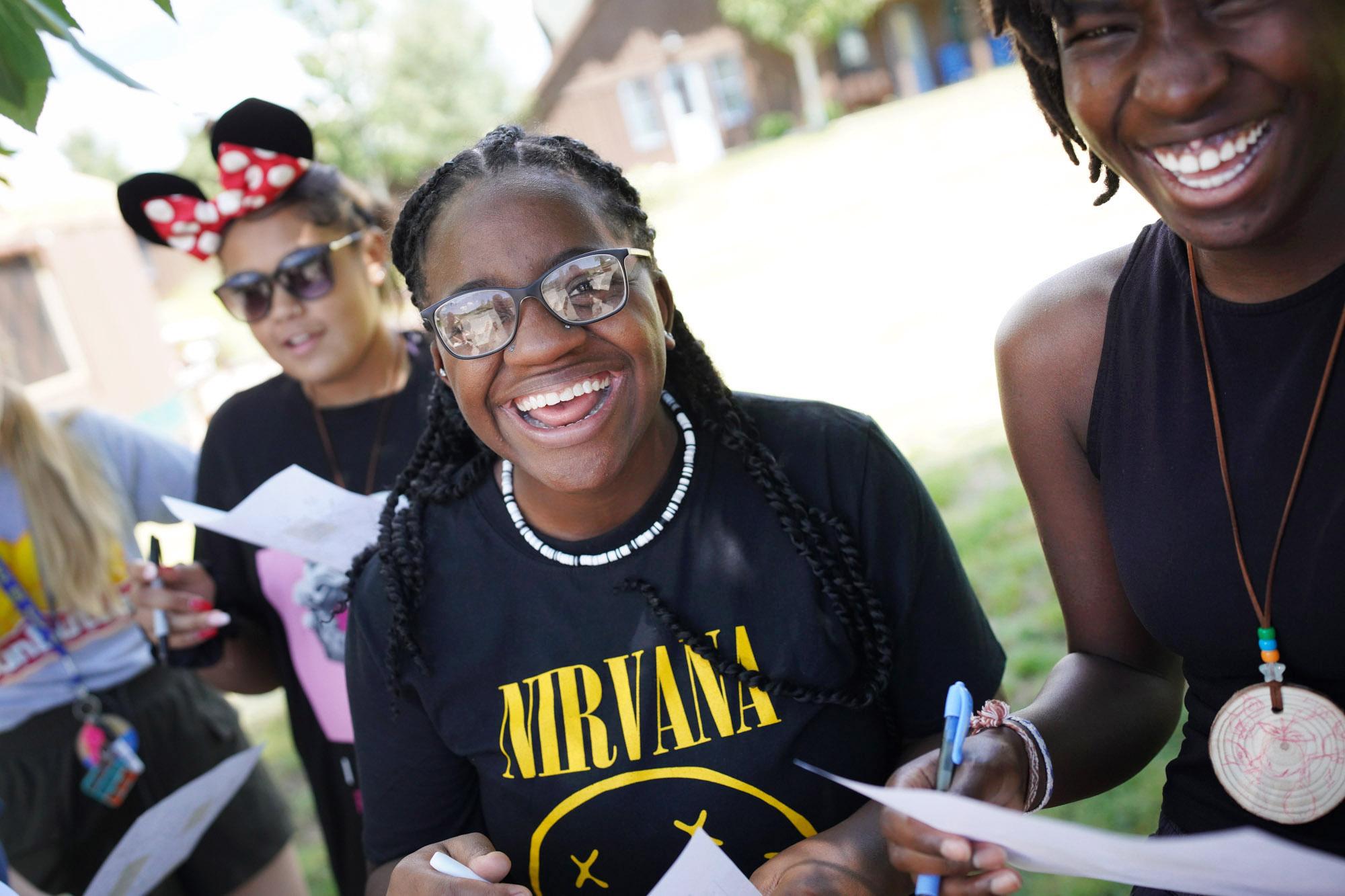
The day is getting hotter as 16-year-old Lorelai Kinzer cheers on a friend reeling in a trout at Roundup River Ranch.
The summer camp for kids with serious illnesses sits in a narrow valley along the Colorado River outside Gypsum, Colo. There are few trees for shade, so Kinzer's cabin elected to fish during the cooler morning hours.
Despite the precaution, Kinzer quickly felt too warm in the high-altitude sun. After about half an hour, she turned in her pole and retreated to a shaded picnic table. The camp has many other shaded spots for kids to take a break and cool down.
"Before I got my brain tumor, I didn't care what the weather was like," Kinzer said. "Now I have to be cautious because if I spend too much time outside, I overheat and I could faint."
As fossil fuels continue to drive rising temperatures, summer camps across the United States are struggling to beat the heat and other side effects of climate change. In the Midwest, camps are adjusting to more floods and dangerous algal blooms in swimming lakes. East coast camps are finding more disease-carrying ticks on kids. In Colorado and other parts of the West, there's the looming threat of wildlife and wildfire smoke.
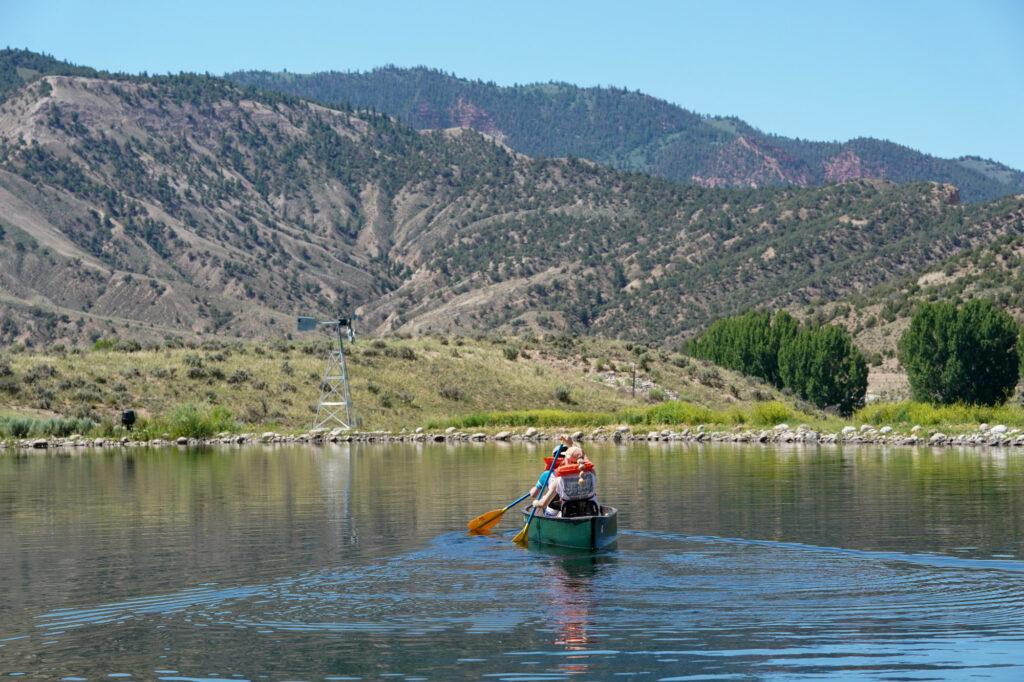
Brutal summers are an even tougher challenge at camps like Roundup River Ranch. To protect the more sensitive population of kids, the camp's leaders have built systems to monitor the environment and quickly adjust activities as needed. Sterling Leija, the director of operations, said the work has revealed lessons that could help other camps adapt while preserving a summertime tradition for many kids.
"Medical camps tend to see trends before our traditional counterparts, whether it's health trends or mental health trends," Leija said. "I do think there are great lessons in that."
Adapting summer traditions to a warmer world
On a recent week in July, all campers at Roundup River Ranch had received either a cancer diagnosis or blood disorder. Leija said medications for those conditions leave them especially sensitive to extreme heat and sunlight.
Kids who start to feel too warm can take advantage of air-conditioned yurts or a scattering of shady resting spots. Hydration is another top concern. In the last few years, the camp has added orange coolers full of ice water around almost every corner.
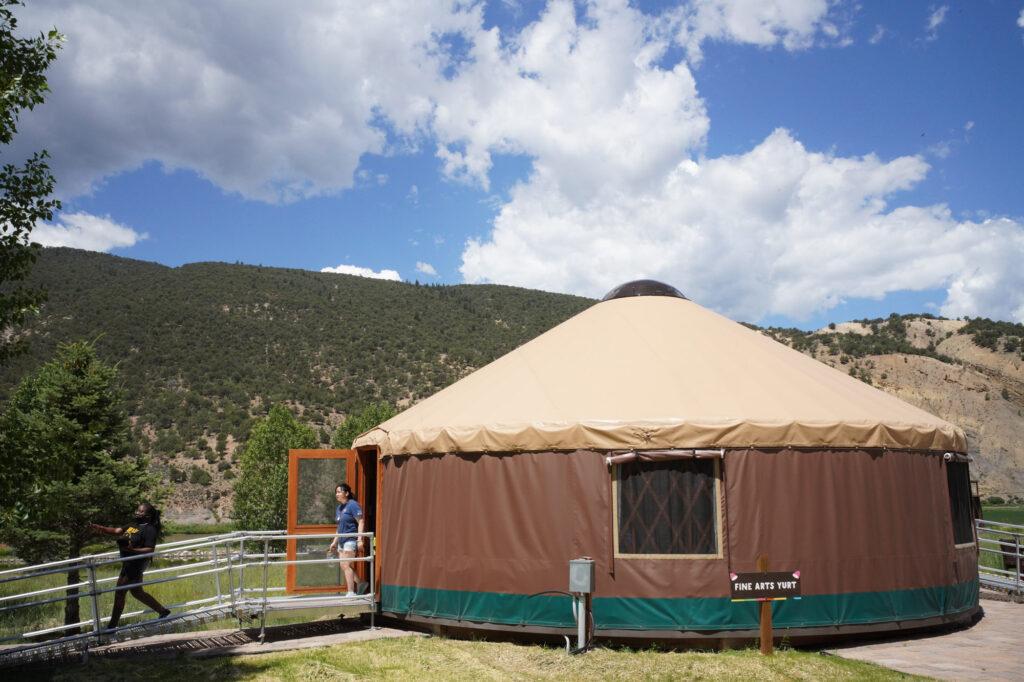
To make sure kids have access to cold drinks, each camp-provided water bottle unscrews in the center, allowing the bottom portion to be filled with ice. Camper Destiny Tatu stopped to refill her bottle after a dance activity. As someone who hates the taste of tepid water, she appreciates the camp's commitment to chilly beverages.
"Destiny approves," she said before chugging.
Another climate adaptation is easier to miss. A few years ago, administrators mounted a small air monitor on the side of one building to track data about wildfire smoke in real-time. The information from the sensor is dispatched to reassure parents of campers with moderate or severe asthma, Leija said. The air quality data also help the camp’s medical staff know when to arm kids with inhalers or move activities indoors.
The camp elected to install the PurpleAir monitor after smoke poured into the camp during the Lake Christine wildfire in 2018. Leija said the camp was set to host families with asthmatic kids, and almost all of them canceled. She said the air monitor now allows the administrators and parents to make more precise risk assessments.
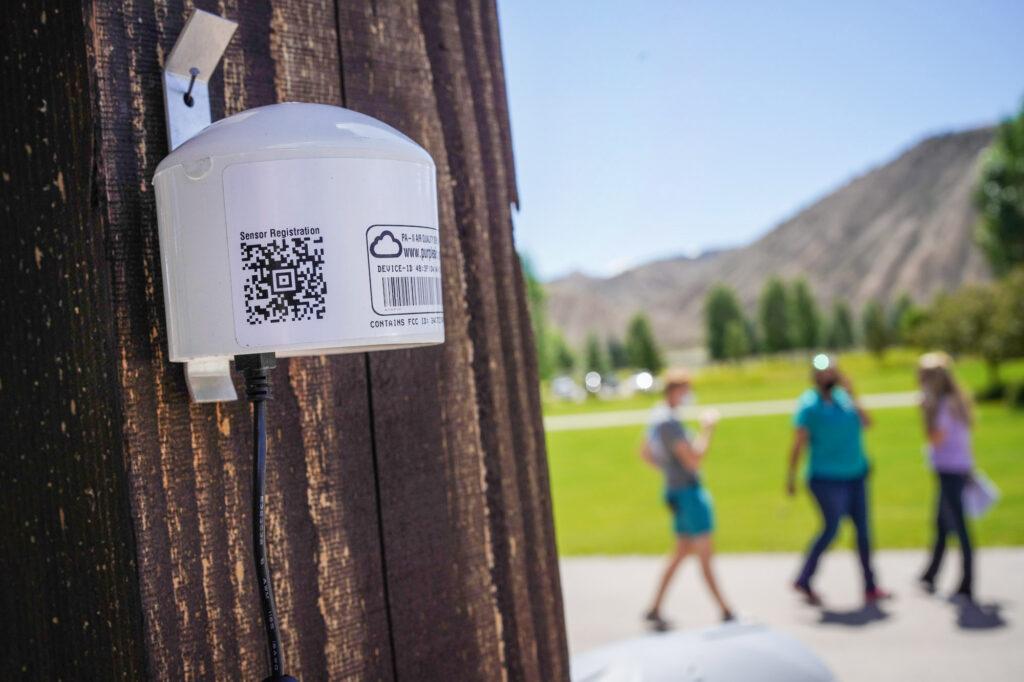
Dr. Anthony Gerber, a pulmonologist at National Jewish Health in Denver, said clear protocols to measure and adjust to poor air quality are a smart move. He worries wildfire smoke could cause parents to panic and insist on keeping kids indoors.
"We don't want to be sounding the alarm and eliminating kids' ability to engage in beneficial outdoor activity," Gerber said. "We just need to be mindful that there are thresholds where that balance changes."
Plans like the one developed by Roundup River Ranch could help other camp administrators monitor air quality and adjust activities to make sure kids get as much outdoor time as possible, Gerber said.
Camps are just starting to plan for poor air quality
CPR News spoke to leaders at several Colorado summer camps to learn how administrators are adapting to climate change. All detailed wildfire evacuation plans, but poor air quality due to wildfire smoke was a newer concern.
A spokesperson for the American Camp Association, an accreditation body covering about 2,400 camps, said wildfires either damaged or forced evacuations at 73 camps across the Western U.S. in 2020 or 2021. Additional camps were unable to operate or forced to modify their schedules due to wildfire smoke.
Tom Rosenberg, the president and CEO of the association, said the threat hasn't led his organization to develop air quality standards, but it now offers educational resources for local camp administrators to learn about wildfire and air quality.
"Broadly speaking, monitoring air quality would typically be a part of a camp’s risk management assessment and planning if there is a risk of wildfires or if the area is prone to air quality challenges," Rosenberg said. "We also recommend that camps refer to state and local guidance around these areas.”
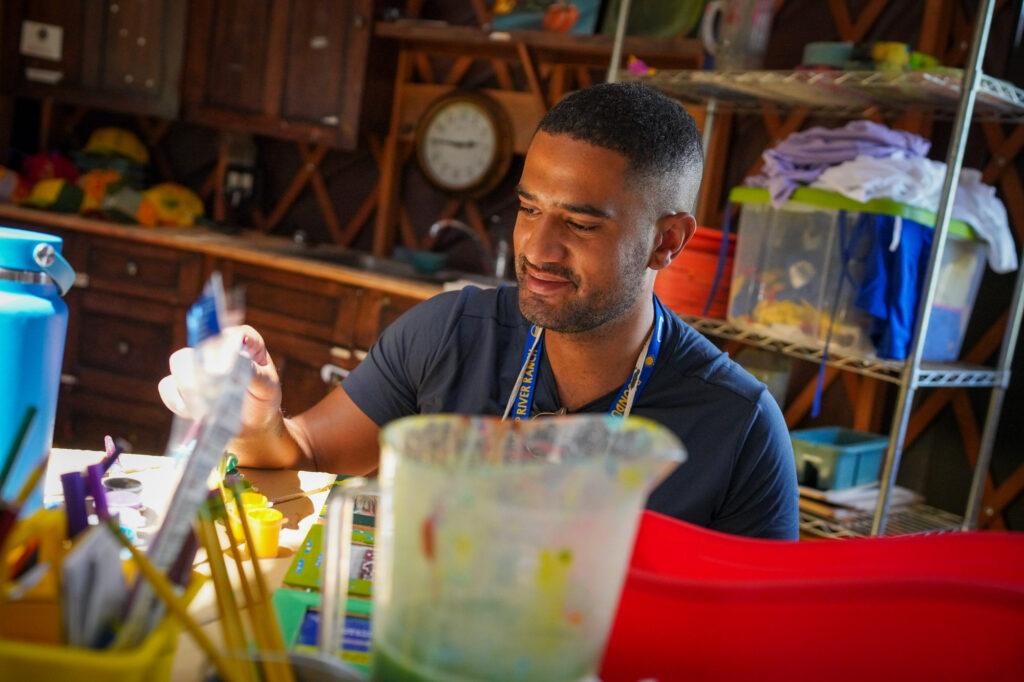
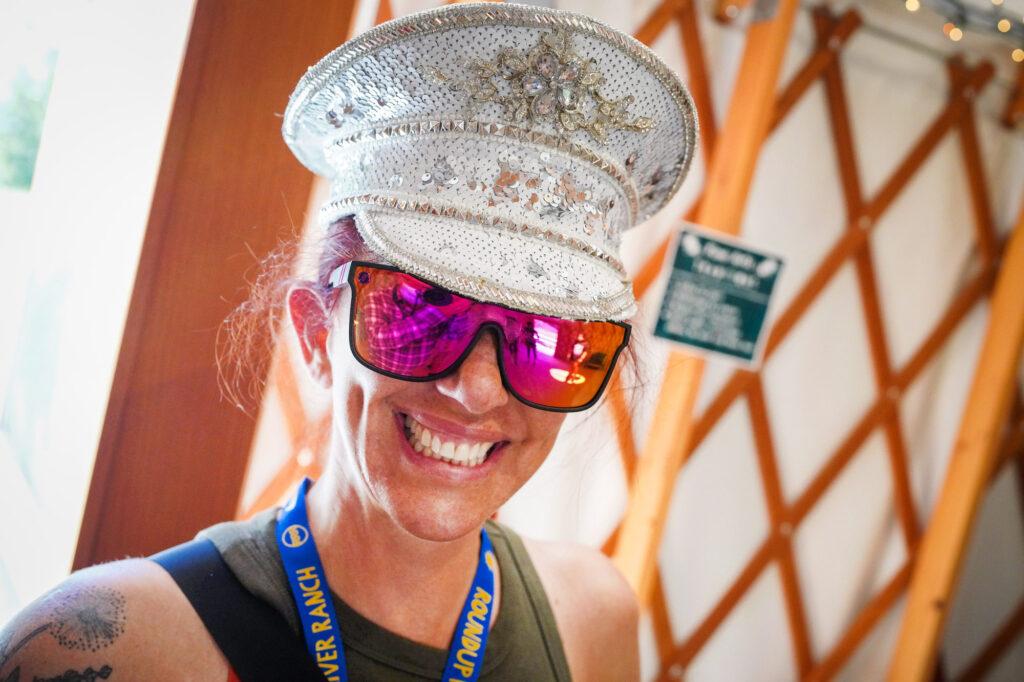
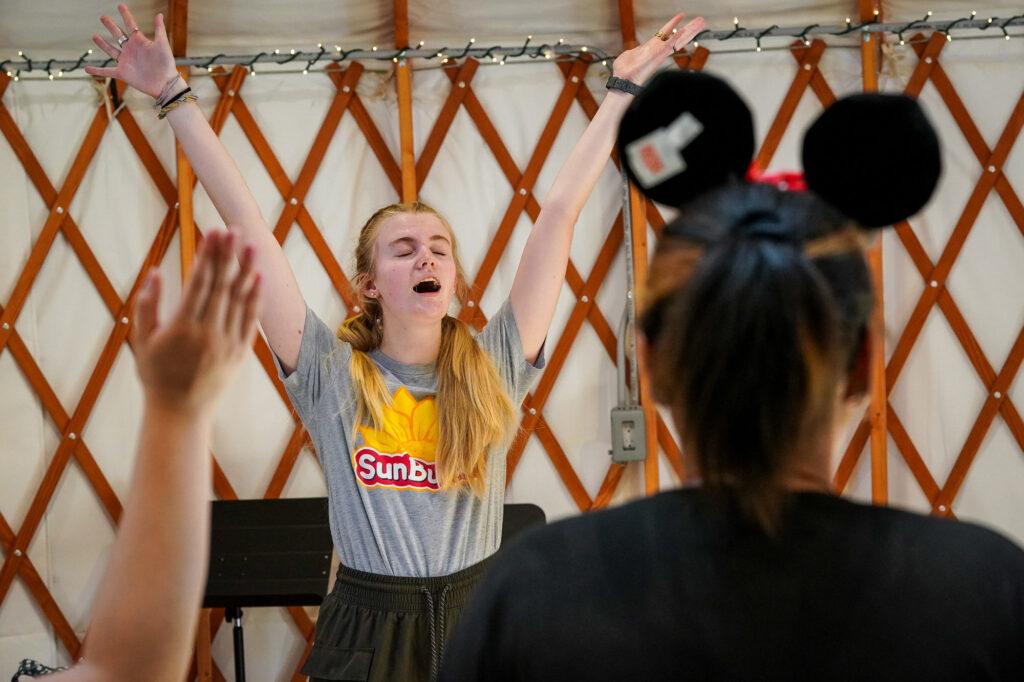
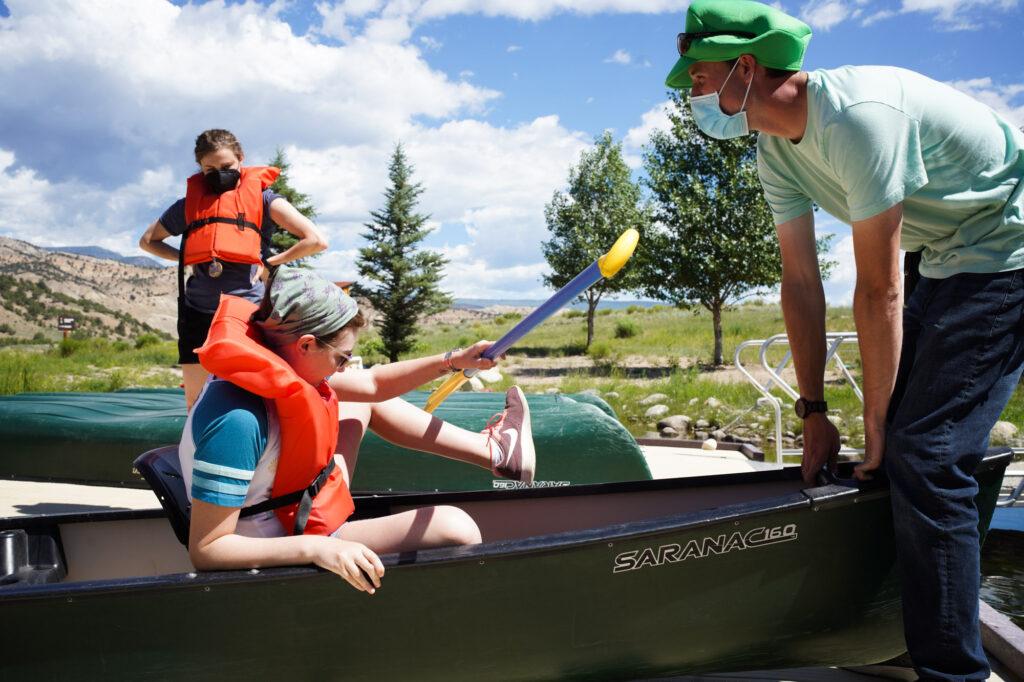
Some of the sights at the Roundup River Ranch.
There is a simple reason Roundup River Ranch is already monitoring air quality, said Finn Mott, a program leader and former camper who's recovered from brain cancer. He said the organization doesn't see vulnerability as a weakness but as something to be understood. This approach helps administrators ensure kids enjoy as many camp activities as possible.
"Coming to camp basically showed me humanity is sacred," Mott said. "And that vulnerability is a powerful force."
It's a force he thinks doesn't apply at this camp alone. As climate change gets worse, healthier kids won’t be spared from heat and bad air — and Mott thinks Roundup River Ranch can help show them how to adapt.








